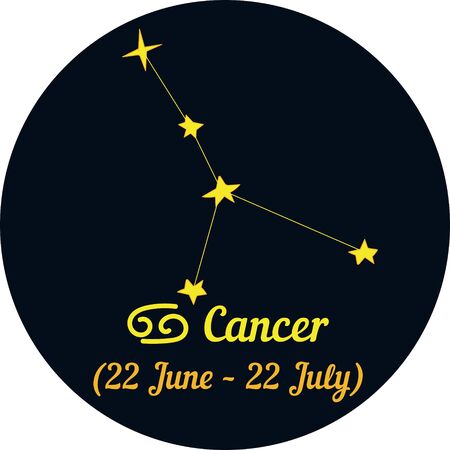Introduction: The British Obsession with the Zodiac
Walk into any British newsagent and you’ll spot horoscopes nestled beside the latest football scores and political headlines. Astrology, once relegated to the back pages of tabloids, has become a staple of conversation from London’s bustling cafes to quiet village pubs in Yorkshire. Whether it’s Geminis gossiping over pints or Capricorns consulting their birth charts before a first date, the stars play an unexpectedly central role in how many Brits approach romance. This enduring fascination isn’t just about curiosity—it’s woven into the fabric of British dating culture. From witty zodiac banter on dating apps to lively debates over whether Scorpios and Leos truly mix, astrology offers both entertainment and a playful framework for navigating modern relationships. In a society known for its emotional reserve, star signs often act as social icebreakers and even decision-making tools when it comes to matters of the heart.
2. Astrological Compatibility: The Basics and Beyond
Astrological compatibility is more than just the buzz of “What’s your sign?” heard in London pubs or whispered at dinner parties from Manchester to Brighton. At its core, it delves into how the unique mix of sun, moon, and rising signs shape our romantic connections—a topic British daters have grown increasingly curious about, especially as astrology apps and horoscopes have seen a resurgence among Gen Z and Millennials. But what does it truly mean in the context of British dating culture?
The Three Pillars: Sun, Moon, and Rising Signs
While most people can recite their sun sign (the classic “I’m a Virgo”), British daters are getting savvier about the deeper layers. The moon sign reflects emotional needs, while the rising sign shapes first impressions—crucial when navigating the famously reserved British approach to new relationships. Here’s a quick breakdown:
| Astrological Element | What It Represents | Relevance in Dating |
|---|---|---|
| Sun Sign | Core personality and ego | Initial attraction; conversation starter |
| Moon Sign | Emotional landscape | Long-term compatibility; emotional support |
| Rising Sign | Social mask and first impression | Chemistry on first dates; social vibes |
Bespoke Interpretations in British Romance
Across the UK, interpretations go beyond generic star sign advice. Many singles now consult personalised birth charts before swiping right or left, using astrology to decode subtle differences—say, why a Libra might gel better with an Aquarius at a Bristol bookshop than with a Capricorn on a rainy Glasgow afternoon. This nuanced approach fits well with British culture’s appreciation for individuality and wit.
A Modern British Take on Compatibility
The rise of astrology meet-ups in cities like London and Edinburgh shows that astrological compatibility is not only about finding your “perfect match” but also about fostering self-awareness and playful curiosity in dating. Whether you’re sceptical or starry-eyed, understanding these basics offers a uniquely British lens through which modern romance can be explored—and perhaps demystified—one chart at a time.

3. Tradition Meets Tinder: Astrology in the Modern UK Dating Scene
Astrology has long been a quirky yet cherished part of British culture, from newspaper horoscopes to pub banter about Mercury retrograde. Yet, in today’s digital-first dating landscape, the stars have found new relevance among millennials and Gen Z-ers navigating romance on apps like Tinder, Hinge, and Bumble. While some may still raise an eyebrow at the idea of matching based on sun signs, there’s no denying that astrological compatibility is now woven into the tapestry of British dating culture. For many young Brits, checking a potential partner’s star sign before a first date is as routine as stalking their Instagram or vetting their Spotify playlists. Why? It’s partly about tradition—grandmothers reading tea leaves or sharing tales of “star-crossed lovers” aren’t far from memory—but it’s also about seeking something deeper than witty banter or a clever bio. In a world where choice overload can make genuine connections feel elusive, astrology offers a comforting shorthand: Are we cosmically compatible? Is there a spark written in the stars? For some, these questions are playful icebreakers; for others, they’re deal-breakers. Whether you’re a pragmatic Capricorn or an impulsive Aries, it’s clear that celestial compatibility is having a renaissance in Britain’s dating scene—blending old-school mystique with swipe-right immediacy.
4. Class, Quirk, and Cosmic Chemistry: Uniquely British Takes
If there’s one thing that makes British dating culture stand out, it’s the blend of class consciousness, understated humour, and a healthy dose of scepticism – all of which colour the way astrology is approached in matters of the heart. While horoscopes might be cited with earnest belief in some cultures, here in the UK, conversations about star signs are often filtered through a lens of irony or playful banter. The phrase “stiff upper lip” springs to mind; there’s a certain reluctance to admit that Mercury retrograde could actually be responsible for a string of dodgy dates.
Banter over Birth Charts: How Brits Navigate Astrological Compatibility
In your average British pub, a discussion about Venus signs is as likely to turn into witty repartee as it is to lead to soul-searching confessions. Swapping tales of disastrous matches with Scorpios or poking fun at one’s own Capricornian seriousness has become part of modern dating small talk. Yet, beneath the jokes, there’s a subtle curiosity: Could the stars explain why things went pear-shaped with that charming stranger from Clapham?
Class and Cosmic Curiosity: Who Believes What?
Attitudes towards astrology can also mirror Britain’s class divides. For some, especially within more traditional or upper-class circles, overt enthusiasm for horoscopes may be dismissed as frivolous. Meanwhile, younger generations or those in creative communities might embrace star sign compatibility as a quirky part of their identity. The table below breaks down these differing attitudes:
Demographic |
Typical Attitude Toward Astrology |
How It Shows Up in Dating |
|---|---|---|
| Traditional/Upper Class | Sceptical; see it as unscientific or unserious | Might joke about it but rarely take it seriously on dates |
| Younger Millennials & Gen Z | Open-minded; see astrology as fun and self-expressive | Swap birth charts on apps; use star signs as ice-breakers |
| Creative Communities | Embrace astrology as part of alternative culture | Date-night tarot readings; astrology memes shared freely |
| Mainstream Urbanites | Mildly interested; treat astrology with light-hearted curiosity | Banter about compatibility over pints; horoscope chat on first dates |
The British Approach: Scepticism Meets Sentimentality
This duality – an outward scepticism mixed with an inward hopefulness – is what makes British takes on astrological compatibility so distinctive. Whether swapping banter over drinks or quietly checking if their date is a compatible sign after they’ve gone home, Brits have managed to make cosmic chemistry both a source of amusement and genuine intrigue within their unique social tapestry.
5. The Science, the Skeptics, and the Spiritualists
Britain has long prided itself on a tradition of rational thought—after all, this is the nation that produced Isaac Newton, Charles Darwin, and a deep-rooted cultural emphasis on common sense and pragmatism. Yet, as modern British daters grapple with the complexities of love in an era of swiping and ghosting, there’s been a noticeable uptick in turning towards astrology for answers. This creates a fascinating cultural push-and-pull: is romance better navigated with data-driven logic or by trusting what the stars have to say?
The British Rationalist Tradition
On one hand, many Brits remain deeply sceptical of anything that can’t be proven in a lab or backed up by empirical evidence. The phrase “pull the other one” sums up a distinctly British response to astrological charts promising romantic bliss. For these pragmatic souls, compatibility is about shared values, lifestyles, and perhaps even bank accounts—not sun signs. Apps like eHarmony and Match.co.uk continue to market themselves on personality testing and science-backed algorithms, catering to this logical approach.
The Rise of Spiritual Guidance in Love
But across cafes from Shoreditch to Glasgow, there’s a parallel trend: millennials and Gen Z are increasingly open to spiritual practices. Astrology memes fill Instagram feeds, Mercury retrograde becomes office banter, and birth chart readings are swapped over pints at the pub. For some, checking if a new flame is a Leo or Virgo adds another layer of intrigue to dating—a way to make sense of emotional chaos when rationality falls short.
A Cultural Crossroads
This dichotomy isn’t just playful banter—it reflects a deeper generational shift. As British society grows more diverse and traditional institutions lose sway, spiritual frameworks offer meaning where conventional logic may not suffice. The blending of science and spirituality in British dating culture speaks to a desire for both certainty and wonder—a uniquely British negotiation between head and heart.
Are We More Than Our Star Signs?
While some will always raise an eyebrow at horoscopes, others find comfort in their cosmic narratives. Whether you’re consulting your birth chart before a first date or steadfastly ignoring Mercury’s antics, the tension between scientific scepticism and spiritual openness continues to shape how modern Brits search for love—and maybe, just maybe, astrology gives us permission to believe in magic amid the mundane.
6. What the Stars Predict: Trends Shaping Modern British Relationships
As astrology moves from niche fascination to a mainstream talking point in British dating culture, its influence on romantic relationships is poised to grow in fascinating ways. The UK’s appetite for horoscopes and birth charts—once confined to the back pages of Sunday supplements—now shapes first-date conversations and even swiping decisions on popular dating apps. So, what do the stars suggest lies ahead for modern British couples?
Deeper Personalisation in Dating Choices
Astrological compatibility tools are likely to become more sophisticated and integrated into digital matchmaking platforms. Imagine apps that go beyond sun signs, delving into moon and rising signs or Venus placements—offering tailored matches based on nuanced astrological profiles. With Gen Z and millennials leading the charge, expect a future where astrological insights inform not just partner selection, but also date ideas and communication tips, all with a distinctly British twist (think: “Best pubs for a Leo-Sagittarius meet-up”).
Redefining Relationship Values
The growing interest in astrology dovetails with broader shifts in relationship values across the UK. As traditional norms give way to more fluid definitions of love and partnership, astrology offers a playful yet meaningful framework for self-discovery and compatibility exploration. This could encourage singles—and couples—to prioritise emotional resonance, shared life goals, and mutual growth over outdated stereotypes about class or background.
Normalising Openness and Vulnerability
Astrology’s language of signs, houses, and aspects can provide a safe space for Britons—often stereotyped as reserved or stoic—to open up about their hopes, fears, and quirks. Whether through star-sign icebreakers at speed-dating events or astrology-themed social gatherings in London’s trendiest boroughs, these cosmic cues may help foster greater authenticity and vulnerability in romantic connections.
A Future Written in the Stars?
While scepticism persists (as it always will in Britain’s famously rational culture), astrology’s role as both an icebreaker and introspective tool is only set to expand. The stars may not dictate destiny, but they certainly offer a fresh lens for understanding ourselves and each other—a lens that could reshape how Brits find love in the years to come.


